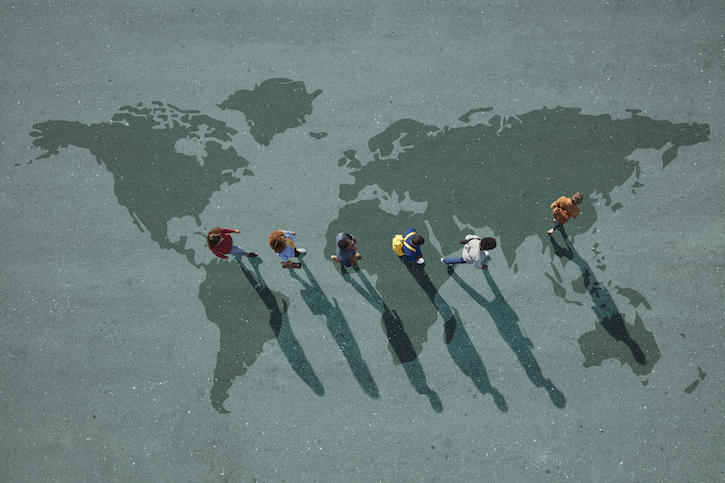In This Story

Each year on September 21, the United Nations calls on the global community to commemorate the International Day of Peace.
This year, our school is recognizing this important day with the start of a new fall semester tradition: Carter School Peace Week.
From Monday, September 21, through Friday, September 25, the Jimmy and Rosalynn Carter School for Peace and Conflict Resolution at George Mason University will be hosting a daily series of roundtables, webinars, workshops, and a happy hour with Carter School dean Alpaslan Özerdem to bring together the Carter School community and the broader public in dialogue about peace, conflict resolution, and justice.
The week’s virtual events will engage the community around a variety of themes, including narrative approaches to conflict resolution; reconciliation and historical memory; peace and justice in the United States; and emerging subjects in peace and conflict resolution, such as peace engineering, evidence-based approaches to peacebuilding, and the connection between the natural environment, peacemaking, and well-being.
View the Carter School Peace Week schedule and learn more about how to register.
The International Day of Peace, established in 1981 through UN General Assembly Resolution A/RES/55/282, serves as an avenue through which the global community is invited to commit itself to “strengthening the ideals of peace,” according to the United Nations.
The most concrete way this is done is through the UN Secretary General’s call every 21st of September for all communities across the world to observe 24 hours of nonviolence and ceasefire.
In addition, a specific theme is chosen each year for the International Day of Peace in order to focus community-wide discussions around specific ways in which we can work to build a more peaceful world. In previous years, the day has built conversation and community around subjects like climate action, human rights, and the Sustainable Development Goals.
In 2020, the ongoing COVID-19 pandemic has prompted a discussion around “Shaping Peace Together.”
“Throughout this year, to mark our 75th anniversary, the United Nations is asking people to engage in a global conversation about how to tackle the greatest global challenges together, from climate change and poverty to racism and gender inequality,” UN Secretary-General António Guterres wrote in his message marking the countdown to the 2020 International Day of Peace.
“Let us use these dialogues, as well as the International Day of Peace, to exchange ideas on how to achieve a global ceasefire, heal our planet and turn the COVID-19 crisis into an opportunity for peace,” he said.
Carter School Peace Week will contribute to these dialogues by drawing on the expertise, scholarship, research, and practice of its faculty, staff, and students to build community around peacebuilding, justice, reconciliation, and conflict resolution.
In putting together this roster of activities, the school is drawing not just on the 2020 theme for the International Day of Peace, but also on the commitment of its namesakes, Jimmy and Rosalynn Carter, to a peacebuilding approach that centers care and cooperation.
“Do what you can to show you care about other people, and you will make our world a better place,” Rosalynn Carter has said, underlining that even though many of the challenges the world faces are structural, peace can begin with each individual person doing their part in their own communities.
“We can choose to alleviate suffering. We can choose to work together for peace. We can make these changes—and we must,” Jimmy Carter said during his 2002 Nobel Lecture upon acceptance of the Nobel Peace Prize.
It’s a message the Carter School seeks to emphasize not just during its upcoming Peace Week but also beyond. Just as its new identity as the Jimmy and Rosalynn Carter School for Peace and Conflict Resolution has opened a new chapter in the school’s history of commitment to furthering the study and cause of peace, Carter School Peace Week will serve as a new anchor for the school’s dedication to creating a space for community-wide dialogue around peace and conflict resolution.
In his weekly letter to students on Friday, September 4, Dean Özerdem expressed an invitation to all members of the Carter School community and the broader public to be a part of this conversation in support of International Peace Day.
“Let's create waves of impact for peace and justice together,” he wrote.
